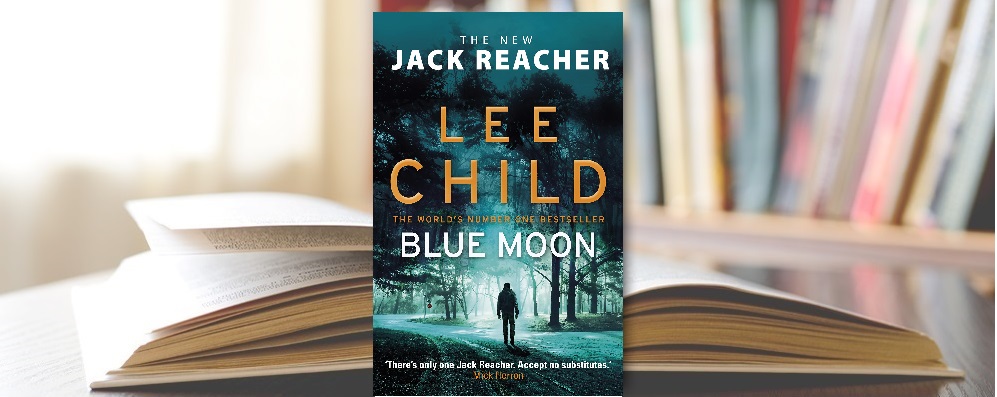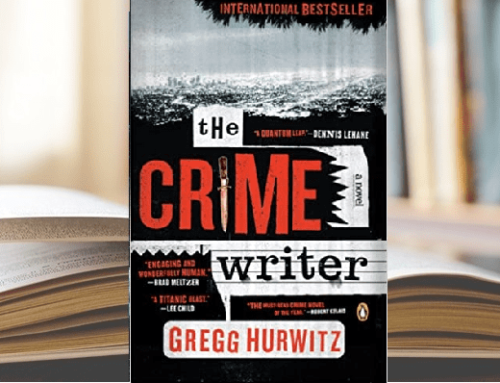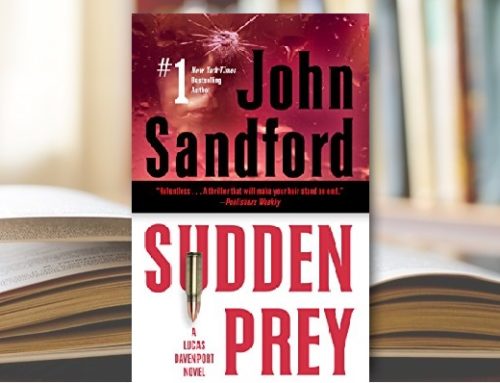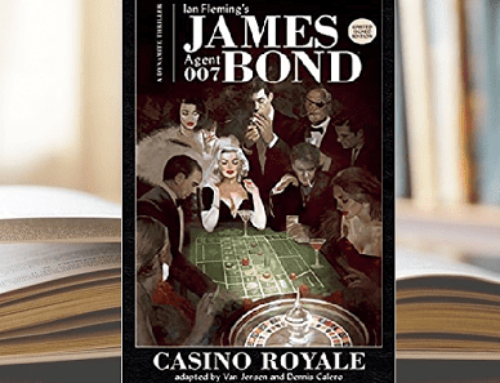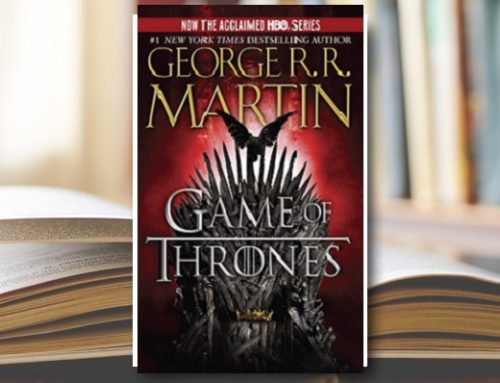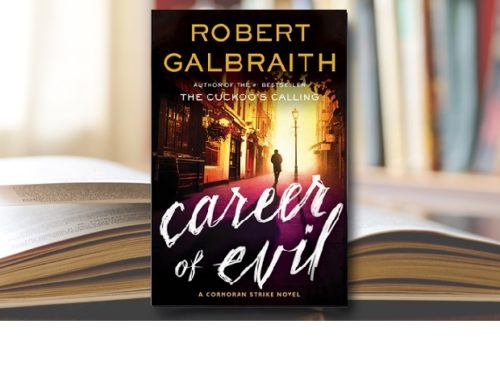[by Ross Browne]
Author’s note: As a reader, I’m a loyal fan of the Jack Reacher series, awaiting each release with rabid anticipation. As a professional editor, I’m a longtime admirer of what Lee Child does well and, at times, a constructive critic of what I believe he could do better. I write about Lee Child often because I love his work and think there’s a lot to be learned from him. His fall 2019 release Blue Moon has given me plenty to think about—especially in light of Child’s decision to hand the series over to his brother Andrew Grant and the possibility that this transition may already be underway.
Overall Impression
Jack Reacher is back in one of his most action-packed stories of the series. Plot dominates characterization here, and the body count is high enough to surprise even some of Child’s most loyal readers. But none of this keeps Blue Moon from being savagely entertaining from the first page to the last. With crisp, muscular prose Child’s action choreography is first-rate, and the suspenseful, exciting story continuously surprises. In short, Blue Moon is a solid, well-told thriller that delivers on what readers want from the series. There’s a ton the author gets right here, and I wasn’t bored for a minute.
What Works
There’s a classic “stranger cleans up a bad town” plot here that is plenty familiar but smartly imagined, with welcome brushstrokes of originality. There’s a clever escalation of story starting with Reacher’s small act of kindness outside a bus station in an unnamed city, leading, step by surprising step, to a classic underdog conflict between Reacher (with a few ragtag allies) and two dangerous, well-funded, and highly motivated crime organizations. With its intriguing plot elements and pacing that’s fast without ever feeling rushed, I think most readers would agree that Blue Moon is hard to put down.
Reacher novels almost always feature some kind of victim-in-distress scenario and a chance encounter at the beginning of the book, putting Reacher in a position to help someone deserving. Here, the victim role falls to an older couple, up to their eyeballs in debt to Ukrainian loan sharks. Their age, fragility, and impoverished circumstances make the Shevick family sympathetic enough to give readers someone to root for, especially as the reason for their predicament becomes known: a sick daughter in need of obscenely expensive medical treatments. And the chance encounter—Reacher preventing Aaron Shevick from getting mugged outside a bus station—gets the plot motor firing quickly.
The bad guys—mostly Ukrainian and Albanian mobsters—are really, really bad, and they go about being bad in some creative and at times frightening ways. The turf war between the Ukrainians and Albanians along with the looming threat of the Russians stepping up to fill in a power vacuum weave a bit of complexity into an otherwise straightforward plot and seed some twists and turns that most readers won’t see coming.
The subplot involving corruption within a startup company and the resulting burden on the Shevick family integrates well with the main plot, providing contrast and respite from more standard mob fare and taking the story to some interesting places. The challenge with the mobsters is mostly physical. The effort to find the man responsible for the Shevick’s problems and hold him accountable is much more cerebral and gives Reacher the opportunity to do some pretty fine sleuthing, which makes the reading experience more dynamic than it would be if he were just taking down mobsters.
While not as complex or character-driven as other books in the series, there’s still a good story here that puts plenty on the line and unfolds with plenty of suspense. There’s a lot of sharply rendered violence shown through the eyes of Reacher, who is in typical fine form analyzing his opponents’ weaknesses, exploiting vulnerabilities, and giving readers a good play-by-play on how he takes each bad guy down. The multiple third-person viewpoint gives readers the chance to see what’s going on from Ukrainians’ and Albanians’ viewpoints as well as Reacher’s, a very good choice for this particular story.
For all its violent scenes, the story has a good bit of heart. Reacher’s compassion for the plight of the Shevicks, his selfless willingness to help, and the risks he takes to not only get the Shevicks out of their jam but to achieve some real justice along the way aren’t just nice touches–they take the edge off all the dark, violent episodes.
Like The Midnight Line, this is a novel that lavishes a good deal of authorial compassion on the human struggle at the foundation of the book’s premise—one I think most readers will find easy to relate to. The Shevicks’ willingness to do anything to give their daughter a fighting chance and Reacher’s willingness to do anything to help them elevate the reading experience of the book and keep the violence from feeling gratuitous.
What Doesn’t Work (Or Could Have Worked Better)
A good case can be made that the characters are too thinly developed, especially when weighed against what we know the author is capable of. (Tripwire‘s Marilyn Stone, The Affair’s Elizabeth Deveraux, Gone Tomorrow’s Lila Hoth.) These are all memorable women with distinct personalities whose thoughts, actions, and behavior command attention. They’re highly proactive in relation to their stories, often surprising, and always interesting in what they say and do. Their names come to mind easily for me, even years after reading their stories.
Blue Moon gives us two women. One is elderly and enacts her role serviceably enough—a worried, desperate mother—but isn’t interesting at all beyond an admirable toughness in dealing with a bad situation. Nothing Mrs. Shevick does is especially memorable, nor is it likely intended to be. The other female lead is young, brave, and willfully open-minded to new experiences.
That would be Reacher’s love interest, Abby, spontaneous and adventurous enough to go on a literal killing spree with Reacher without much of a second thought. One day she’s minding her own business, tending bar, and living a life we learn next to nothing about. The next day she’s helping her mysterious new boyfriend mow down Mobsters. There is what some may see as a darkly comical element to this and a credible motive established thanks to Abby’s witnessing first-hand what the bad guys are capable of. But at the end of the day, Abby comes across as a more of a vehicle to enact plot than a real, breathing person. Readers who share my fondness for Jodie Garber and found her role as love interest and partner in handling Reacher’s conflict-du-jour in Tripwire completely convincing will know exactly what I mean.
Reacher novels often require a suspension of disbelief, as do many stories in this genre. But Abby’s willingness to jeopardize her own life and join in attacks on many others asks a lot of readers’ tolerance, enough to be a distraction at times. And there’s something off-putting about how little (if any) thought Abby gives to what she’s doing, or what would happen were she to be caught. The notion that a young, innocent woman could go through what she does, jump in the shower with Reacher for some farewell sex just before the curtain comes down casts a bit of a pall on my experience of the novel. Yet it feels consistent with the plot-driven nature of the book and the revenge fantasy element of the story.
The male characters in Blue Moon—other than Reacher—are generic for the most part, thus not especially memorable. Aaron Shevick is a nice old guy but like his wife not that interesting. His determination to help his daughter is admirable, but he demonstrates little in the way of personality and is reactive rather than proactive for most of the story.
The mobsters—Ukrainian or Albanian—are plenty entertaining to watch in action but generic. There are a lot of them, and they all seem to speak in the same voice. Their dialogue is interesting enough, especially as they contemplate strategy and try to make sense of why their people are dying.
Readers looking for colorful, memorable mob types like Nelson DeMille’s Frank Bellarosa or Mario Puzo’s Vito Corleone will be disappointed. There’s no one as distinctive and memorable as Child’s own Hook Hobie (Tripwire) or Beau Borken (Die Trying)—two bad guys with fascinating personalities and distinct character voices who do what they do for interesting reasons their stories explore.
I strongly suspect Blue Moon is deliberately not concerned with characterization. The pacing may benefit as a result, but something valuable is lost. (Something I know the author is more than capable of delivering in spades.) The story could really come alive with more attention to personality and character voice—also if some of the secondary characters took lead on decisions or actions that influence plot outcomes. Instead, it seems the author has chosen to go just far enough with his characters so they dutifully serve the plot and leave it at that. This is his prerogative, of course, but I find the novel less compelling as a result. (Still good, just the same.)
The only other element that consistently interfered with my enjoyment of the story is the stunning lack of attention to law enforcement response to a big city gang war. Blue Moon’s world is one where police, ATF, FBI and other parties one might think would take an interest in the bloodbath playing out on the city’s streets seem to be essentially nonexistent. Readers hear about them, but they present no obstacle or challenge.
This is hard to believe on its own, and somewhat problematic because one thread of the story is fueled by the arrival of a new police commissioner who is supposedly tough as nails on police corruption and organized crime. Having just reread Never Go Back, I’m reminded of the good things that happen when Child uses police response as a threat to Reacher, and a source of obstacle and interference. The plot could be even more suspenseful if police presence was put to better use in the story—if, say, Reacher had to outwit a few cops along the way.
Reacher does sometimes operate in a world where law enforcement seems not to exist, but I find this to play better in the rural, isolated locales where many of his stories are set. Here, we’re in a big city where the absence of police response is much harder to believe. As a result, opportunities are missed.
One final observation: for 22 of the 24 full-length books in this series released thus far, I’ve found Reacher to be a trustworthy narrator who behaves in a way I have always found satisfying in its consistency. In other words, most of what he thinks and says makes sense to me and feels like an organic, natural extension of the character I’ve come to know and think so highly of over the years.
Starting with Past Tense or perhaps even Night School, I began noticing occasional instances where he thinks (or says) something that doesn’t feel quite like Reacher. I find these false notes highly distracting.
Take, Reacher’s objection to Aaron Shevick’s concern that the Albanians may still expect an exorbitant late fee, even though he showed up on time to repay the money he owed before the agreed-upon deadline, only to find that his “loan officer” isn’t there and the meeting has been postponed. Reacher advises him not to worry, citing a principle that however correct—not your fault, not your problem—just sounds naïve, because these are people who scoop out defaulting borrower’s eyeballs with spoons and drill into their kneecaps with masonry bits.
Or consider Reacher’s comparison of Maxim Trulenko—an entrepreneur designing software that connects medical records to a cell phone app—to a “rock star”, someone with such a high profile in this big city that there would be bus tours to his home and suggesting he couldn’t order a pizza without being recognized. This reasoning feels far-fetched and way off base, too outlandish to really fit in the mind (or mouth) of Jack Reacher. This just had me scratching my head and thinking: What? Reacher would never say that–or even think it.
Conclusion
In a hypothetical scenario where I get the opportunity to have a pre-publication editorial conference with one of my favorite authors about one of my favorite series, I’d have this to say:
The premise of the story is great. The conflicts at the root of the story work very well. The amount of violence in the book—lots, even by Reacher standards—may be troubling to some readers but does not seem gratuitous when considered in context.
The events of the novel are plenty engaging and fit together brilliantly. But they’d involve readers more if we were given the opportunity to understand and care more about the people affected by them. ‘’
A credible and more frequent law enforcement could create even more tension and suspense within this already strong plot.
Finally, if Andrew Grant is already at work behind the scenes, perhaps already collaborating to some degree on this book or sharing some of the load in preparation to take over the series, then there’s a perfectly good explanation for the occasional passage or moment where Reacher doesn’t sound like Reacher—because the thoughts or dialogue may not have been penned by his creator.
I suspect Grant can do a splendid job with this character and would just suggest being especially vigilant in the effort to maintain character and avoid false notes Taking the authorial helm with such a long-running, popular series can’t be easy, and Reacher’s loyal and ravenous fanbase will surely thank you for keeping the core appeal of Jack Reacher intact.

